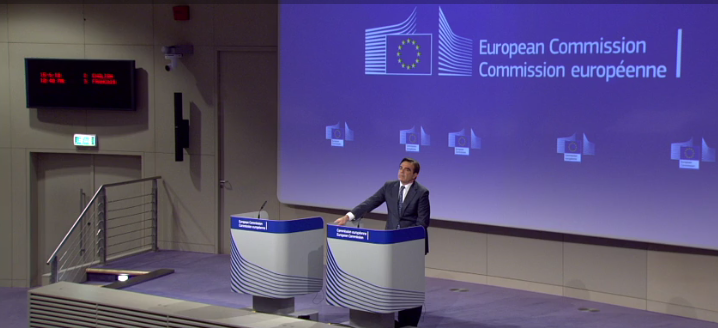Why are the sanctions on Belarusians being lifted?
(B2) This is no longer the shadow of a doubt today. And the French Secretary of State for European Affairs, Harlem Désir, confirmed in Luxembourg what not everyone dared to say. " There is an agreement to suspend the sanctions hitting the Belarusians, for a period of 4 months. This lifting occurs for several reasons, good or bad.
The situation...
First of all, the elections certainly were not super democratic. When a president is elected with 83% of the votes and the second makes up the numbers with 4% of the votes, there is a suspicion of democratic failure. But they were not followed by a policy of repression, as at the end of 2010. They occur “ in a calm atmosphere explains Harlem Désir. Then, the reason for these sanctions disappeared. The political prisoners were released by the Lukashenko government, the last in August. It's not a detail. Because the device of the sanctions cannot in the state continue. A system of sanctions already undermined. For several months, European courts have very regularly invalidated the sanctions imposed on Belarusians, considering them unproven. And around XNUMX people have already been quietly removed from the EU blacklist over the summer, for similar reasons (read: The “Belarus” blacklist reduced by 24 names).
... and politics
To these reasons, more or less legally based, are added much more political considerations. Belarus has played a role, which is considered positive, in Brussels as well as in Paris and Berlin, in the Ukrainian crisis. By showing a certain equidistance between Russians and Ukrainians, with whom Lukashenko maintains good relations, by offering its capital as a place of negotiation which preluded the two Minsk agreements, Belarus has quite skilfully pulled out of the game. Minsk is also trying to not to be totally dependent on Moscow and to draw closer to the European Union, while maintaining its privileged link with Russia. In this respect, this is a test of the EU's new eastern neighborhood policy, which is less "aggressive" towards Moscow and more realistic. The “idealistic” policy put in place at the end of 2013, where by the signing of close agreements, Europe intended to bring democracy and the market economy to the countries closest to Russia, is over. Suddenly, the largely autocratic power of Lukashenko and the reduction to almost zero of his opposition.
The discovery of Realpolitik, a turning point compared to 2013
Europe, which has often been taxed as the care bears of international politics, thus practices a certain RealPolitik, quite cold, a little far removed no doubt from the proclamation of democratic values, but no doubt more concrete vis-à-vis its own means. Belarus thus represents to the East what Egypt represents to the South: a subtle compromise between the necessary defense of values and the equally necessary search for poles of stability in the neighbourhood. The bet made in Brussels is that, step by step, the outstretched hand policy could in the end produce more effect than the grand policy of association agreements with the eastern neighborhood concluded in November 2013, which resulted in more on chaos as on stability (cf. Ukraine or Moldova), both politically and economically.
(Nicolas Gros-Verheyde)
More details read about B2 Pro:


